Strictly Personal
Water Management: Morocco’s greatest threat or opportunity? By Jasper Hamann
Published
2 years agoon

Morocco has its work cut out for itself when it comes to water management. While the country is rich in innovative agricultural thinking and houses high-tech institutes and is one of the world’s largest fertilizer producers, many of the country’s farmers continue to depend primarily on rainfall to supply water for agricultural production.
Morocco’s future outlook could be dire if it does not heed warnings about the ever-escalating climate crisis. As the world continues to output massive amounts of carbon and methane, droughts and extreme weather are increasingly becoming a part of daily life.
An Evolving Crisis
The last few years have aptly shown the destructive nature of the climate crisis, as Morocco has faced its worst drought in nearly half a century. While droughts were already common in the North African country, occurring on average every three years, the current trend shows that things are only going to get worse.
The UN’s sustainable development division has pointed to Morocco’s water scarcity as the “main constraint on expansion” for its vital agricultural sector. While Morocco can have little impact on the evolution of the global climate crisis, local academics, businesses, and government are attempting to step up, and help the country prepare for what is to come.
Government Response
As one of Morocco’s top officials on this dossier, Minister of Equipment and Water Nizar Baraka in May pointed out that Morocco is set to lose 30% of its current water resources by 2050. Baraka has called for the need for the country to invest in water efficiency, and emphasized the need for “hydro-diplomacy,” to establish solid international agreements to prevent future water resources from dwindling water supplies.
Meanwhile, the government is mustering its financial resources to aim to protect Morocco’s water supply, while making satellite data available to better manage the country’s outdated irrigation networks.
In January, the cabinet allocated $260 million for its 2021-2022 water emergency plan, yet such amounts can only provide minor temporary solutions. The country’s Court of Auditors recognized this fact in a report in March, calling for massive structural funding to update irrigation, limit water waste, and protect domestic water resources.
Funding Solutions
But billions are needed to increase, not just protect, Morocco’s water supply. Minister Baraka recognizes this and has pointed to Morocco’s expansive coastline as a possible asset where futuristic desalination plants would help convert seawater into potable water resources.
Whether desalination will be a viable option for all of Morocco remains to be seen, as experts say this prospect depends on the cost to construct the plants, creating the (sustainable) energy needed to run them, and finding solutions for its waste product, brine.
As is common with Moroccan public projects, the country is not thinking small. Instead, it is constructing the world’s largest desalination plant in Casablanca, the success of which is likely to determine whether Morocco will repeat this strategy elsewhere.
Thought leaders
“Managing water is like managing your bank account,” Dr. Abdelghani Chehbouni, Professor at Mohammed VI Polytechnic University (UM6P), recently told MWN.
The professor is part of several key innovators and thought-leaders working to address Morocco’s growing water crisis. Solutions vary from simple low-tech changes, such as moving towards drip irrigation in Moroccan agriculture, to the ultra-high-tech ideas coming from the country’s foremost knowledge institutes.
UM6P, the country’s top research institute in this area, is building on the potential of AI machine learning, drones, and other innovative technology through its dedicated research institute, the International Water Research Institute (IWRI).
Similarly, the country’s largest company, fertilizer and phosphate giant OCP Group is counting on technology to provide solutions to the growing problem facing Morocco and the rest of the world.
Private Sector
For its own operations, OCP has introduced one of the most far-reaching water conservation initiatives of any large corporation worldwide, aiming to exclusively use non-conventional water sources within a decade while already recycling much of its own water needs. “We’ll use zero fresh water by 2028,” the company has vowed.
OCP’s ambitions go far beyond its own operations, however, as the fertilizer company is investing heavily in domestic and continental initiatives to combat water stress while contributing to major international fora on the topic.
At the 2022 International Water Association’s Forum for Industrial Water Users this past Friday, OCP presented their most recent effort, an e-book to promote sustainable water use for industry.
In many ways, OCP Group’s operations present a microcosm of African water issues. Phosphate mining, transportation, and fertilizer production are water-intensive processes that mirror the growing need for water resources in Africa’s growing industrial sector and agriculture.
OCP’s approach however presents a sense of hope, as it is already applying some of the methods that governments across Africa are likely to depend on in the future.
Future African and Moroccan solutions can already be found in OCP’s current strategy of far-reaching water conservation, intensive use of desalination, and water treatment while generating much of the energy for these processes in a sustainable manner.
As Morocco, Africa, and the rest of the world scramble for solutions to growing water scarcity, Morocco’s efforts are increasingly tailored toward turning a threat into an opportunity and presenting an optimistic technology-driven vision for a sustainable future in an evolving global climate context.
You may like
-


African Union must ensure Sudan civilians are protected, By Joyce Banda
-


Economic policies must be local, By Lekan Sote
-


Dangote Refinery: A timely win for industrialisation, By Abiodun Alade
-


Mpox crisis: We need an equity-driven pandemic treaty, By Magda Robalo
-


Olympics had free lessons for African leaders, By Tee Nugugi
-


Athletes bring gold, economists bring debts, botched projects, By Joachim Buwembo
Strictly Personal
African Union must ensure Sudan civilians are protected, By Joyce Banda
Published
3 weeks agoon
October 25, 2024
The war in Sudan presents the world – and Africa – with a test. This far, we have scored miserably. The international community has failed the people of Sudan. Collectively, we have chosen to systematically ignore and sacrifice the Sudanese people’s suffering in preference of our interests.
For 18 months, the Rapid Support Forces (RSF) and the Sudanese Armed Forces (SAF) have fought a pitiless conflict that has killed thousands, displaced millions, and triggered the world’s largest hunger crisis.
Crimes against humanity and war crimes have been committed by both parties to the conflict. Sexual and gender-based violence are at epidemic levels. The RSF has perpetrated a wave of ethnically motivated violence in Darfur. Starvation has been used as a weapon of war: The SAF has carried out airstrikes that deliberately target civilians and civilian infrastructure.
The plight of children is of deep concern to me. They have been killed, maimed, and forced to serve as soldiers. More than 14 million have been displaced, the world’s largest displacement of children. Millions more haven’t gone to school since the fighting broke out. Girls are at the highest risk of child marriage and gender-based violence. We are looking at a child protection crisis of frightful proportions.
In many of my international engagements, the women of Sudan have raised their concerns about the world’s non-commitment to bring about peace in Sudan.
I write with a simple message. We cannot delay any longer. The suffering cannot be allowed to continue or to become a secondary concern to the frustrating search for a political solution between the belligerents. The international community must come together and adopt urgent measures to protect Sudanese civilians.
Last month, the UN’s Independent International Fact-Finding Mission for Sudan released a report that described a horrific range of crimes committed by the RSF and SAF. The report makes for chilling reading. The UN investigators concluded that the gravity of its findings required a concerted plan to safeguard the lives of Sudanese people in the line of fire.
“Given the failure of the warring parties to spare civilians, an independent and impartial force with a mandate to safeguard civilians must be deployed without delay,” said Mohamed Chande Othman, chair of the Fact-Finding Mission and former Chief Justice of Tanzania.
We must respond to this call with urgency.
A special responsibility resides with the African Union, in particular the AU Commission, which received a request on June 21 from the AU Peace and Security Council (PSC) “to investigate and make recommendations to the PSC on practical measures to be undertaken for the protection of civilians.”
So far, we have heard nothing.
The time is now for the AU to act boldly and swiftly, even in the absence of a ceasefire, to advance robust civilian protection measures.
A physical protective presence, even one with a limited mandate, must be proposed, in line with the recommendation of the UN Fact-Finding Mission. The AU should press the parties to the conflict, particularly the Sudanese government, to invite the protective mission to enter Sudan to do its work free from interference.
The AU can recommend that the protection mission adopt targeted strategies operations, demarcated safe zones, and humanitarian corridors – to protect civilians and ensure safe, unhindered, and adequate access to humanitarian aid.
The protection mission mandate can include data gathering, monitoring, and early warning systems. It can play a role in ending the telecom blackout that has been a troubling feature of the war. The mission can support community-led efforts for self-protection, working closely with Sudan’s inspiring mutual-aid network of Emergency Response Rooms. It can engage and support localised peace efforts, contributing to community-level ceasefire and peacebuilding work.
I do not pretend that establishing a protection mission in Sudan will be easy. But the scale of Sudan’s crisis, the intransigence of the warring parties, and the clear and consistent demands from Sudanese civilians and civil society demand that we take action.
Many will be dismissive. It is true that numerous bureaucratic, institutional, and political obstacles stand in our way. But we must not be deterred.
Will we stand by as Sudan suffers mass atrocities, disease, famine, rape, mass displacement, and societal disintegration? Will we watch as the crisis in Africa’s third largest country spills outside of its borders and sets back the entire region?
Africa and the world have been given a test. I pray that we pass it.
Dr Joyce Banda is a former president of the Republic of Malawi.
Strictly Personal
Economic policies must be local, By Lekan Sote
Published
3 weeks agoon
October 24, 2024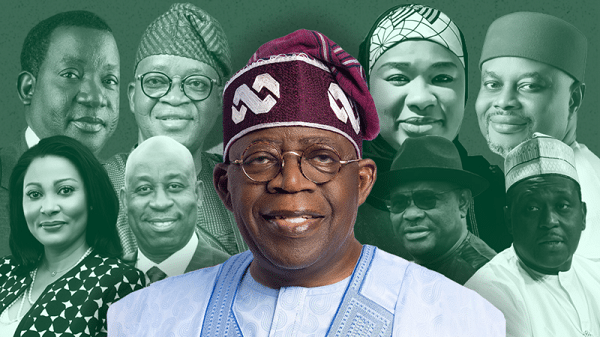
With 32.70 per cent headline inflation, 40.20 per cent food inflation, and bread inflation of 45 per cent, all caused by the removal of subsidies from petrol and electricity, and the government’s policy of allowing market forces to determine the value of the Naira, Nigerians are reeling under high cost of living.
The observation by Obi Alfred Achebe of Onitsha, that “The wellbeing of the people has declined more steeply in the last months,” leads to doubts about the “Renewed Hope” slogan of President Bola Tinubu’s government that is perceived as extravagant, whilst asking Nigerians to be patient and wait for its unfolding economic policies to mature.
It doesn’t look as if it will abate soon, Adebayo Adelabu, Minister of Power, who seems ready to hike electricity tariffs again, recently argued that the N225 per kilowatt hour of electricity that Discos charge Band A premium customers is lower than the N750 and N950 respective costs of running privately-owned petrol or diesel generators.
While noting that 129 million, or 56 per cent of Nigerians are trapped below poverty line, the World Bank revealed that real per capita Gross Domestic Product, which disregards the service industry component, is yet to recover from the pre-2016 economic depression under the government of Muhammadu Buhari.
This has led many to begin to doubt the government’s World Bank and International Monetary Fund-inspired neo-liberal economic policies that seem to have further impoverished poor Nigerians, practically eliminated the middle class, and is making the rich also cry.
Yet the World Bank, which is not letting up, recently pontificated that “previous domestic policy missteps (based mainly on its own advice) are compounding the shocks of rising inflation (that is) eroding the purchasing power of the people… and this policy is pushing many (citizens) into poverty.”
It zeroes in by asking Nigeria to stay the gruelling course, which Ibukun Omole thinks “is nothing more than a manifesto for exploitation… a blatant attempt to continue the cycle of exploitation… a tool of imperialism, promoting the same policies that have kept Nigeria under the thumb of… neocolonial agenda for decades.”
When Indermilt Gill, Senior Vice President of the World Bank, told the 30th Summit of Nigeria’s Economic Summit Group, in Abuja, Federal Capital Territory, that Nigerians may have to endure the harrowing economic conditions for another 10 to 15 years, attendees murmured but didn’t walk out on him because of Nigerian’s tradition of politeness to guests.
Governor Bala Muhammed of Bauchi State, who agrees with the World Bank that “purchasing power has dwindled,” also thinks that “these (World Bank-inspired) policies, usually handed down by arm-twisting compulsions, are not working.”
What seems to be trending now is the suggestion that because these neo-liberal policies do not seem to be helping the economy and the citizens of Nigeria, at least in the short term, it would be better to think up homegrown solutions to Nigeria’s economic problems.
Late Speaker of America’s House of Representatives, Tip O’Neill, is quoted to have quipped that, at the end of the day, “All politics is local.” He may have come to that conclusion after observing that it takes the locals in a community to know what is best for them.
This aphorism must apply to economics, a field of study that is derived from sociology, which is the study of the way of life of a people. Proof of this is in “The Wealth of Nations,” written by Adam Smith, who is regarded as the first scholar of economics.
In his Introduction to the Penguin Classics edition of “The Wealth of Nations,” Andrew Skinner observes: “Adam Smith was undoubtedly the remarkable product of a remarkable age and one whose writing clearly reflects the intellectual, social and economic conditions of the period.”
To drive the point home that Smith’s book was written for his people and his time, Skinner reiterated that “the general ‘philosophy,’ which it contained was so thoroughly in accord with the aspirations and circumstances of his age.”
In a Freudian slip of the Darwinist realities of the Industrial Revolution that birthed individualism, capitalism, and global trade, Smith averred that “How selfish soever man may be supposed, there are evidently some principle in his nature which interest him in the fortune of others, and render their happiness necessary to him, though he derives nothing from it, except the pleasures of seeing it.”
And, he let it slip that capitalism is for the advantage of Europe when he confessed that “Europe, by not leaving things at perfect liberty (the so-called Invisible Hand), occasions… inequities,” by “restraining the competition in some trades to a smaller number… increasing it in others beyond what it naturally would be… and… free circulation of labour (or expertise) and stocks (goods) both from employment to employment and from place to place!”
Policymakers, who think Bretton Woods institutions will advise policies to replicate the success of the Euro-American economy in Nigeria must be daydreaming. After advising elimination of subsidy, as global best practices that reflect market forces, they failed to suggest that Nigeria’s N70,000 monthly minimum wage, neither reflects the realities of the global marketplace, nor Section 16(2,d) of Nigeria’s Constitution, which suggests a “reasonable national minimum living wage… for all citizens.”
After Alex Sienart, World Bank’s lead economist in Nigeria, pointed out that the wage increase will directly affect the lives of only 4.1 per cent of Nigerians, he suggested that Nigeria needed more productive jobs to reduce poverty. But he neither explained “productive jobs,” nor suggested how to create them.
In admitting past wrong economic policies that the World Bank recommended for Nigeria, its former President, Jim Yong Kim, confessed, “I think the World Bank has to take responsibility for having emphasized hard infrastructure –roads, rails, energy– for a long time…
“There is still the bias that says we will invest in hard infrastructure, and then we grow rich, (and) we will have enough money to invest in health and education. (But) we are now saying that’s the wrong approach, that you’ve got to start investing in your people.”
Kim is a Korean-American physician, health expert, and anthropologist, whose Harvard University and Brown University Ivy League background shapes his decidedly “Pax American” worldview of America’s dominance of the world economy.
Despite his do-gooder posturing, his diagnoses and prescriptions still did not quite address the root cause of Nigeria’s economic woes, nor provide any solutions. They were mere diversions that stopped short of the way forward.
He should have advocated for the massive accumulation of capital and investments in the local production of manufacturing machinery, industrial spare parts, and raw materials—items that are currently imported, weakening Nigeria’s trade balance.
He should have pushed for the completion of Ajaokuta Steel Mill and helped to line up investors with managerial, technical, and financial competence to salvage Nigeria’s electricity sector, whose poor run has been described by Dr. Akinwumi Adesina, President of Africa Development Bank, as “killing Nigerian industries.”
He could have assembled consultants to accelerate the conversion of Nigeria’s commuter vehicles to Compressed Natural Gas and get banks of the metropolitan economies, that hold Nigeria’s foreign reserves in their vaults, to invest their low-interest funds into Nigeria’s agriculture— so that Nigeria will no longer import foodstuffs.
Nigerians need homegrown solutions to their economic woes.
EDITOR’S PICK
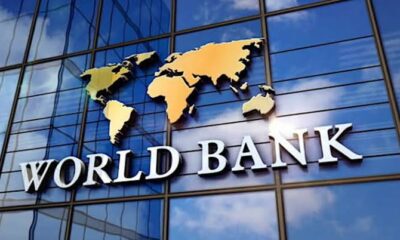

World Bank pledges $3b to support Zambia’s development goals
The World Bank Group has pledged to avail Zambia with approximately $3 billion to support the country’s development goals under...
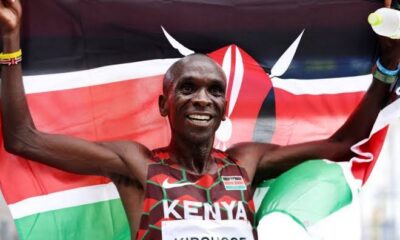

Kenyan marathon legend Kipchoge advises young athletes to prioritize success over money
Kenyan marathon legend, Eliud Kipchoge, has advised young athletes to place success ahead of quick money and riches. The former...


Tyla set to drop new single ‘Tears’ on November 20
South African “Ampiona” crooner, Tyla, is set to thrill her fans to her new single titled, “Tears’, which is set...


1,172 Nigerians killed, over 1,000 kidnapped in nine months— NHRC
The National Human Rights Commission (NHRC) has put the figures of Nigerians killed and kidnapped by non-state actors from January...


Bolt invests $107m in Nigeria to boost safety standards
Ride-hailing platform, Bolt, has announced an investment of $107 million in its bid to boost safety and service quality in...
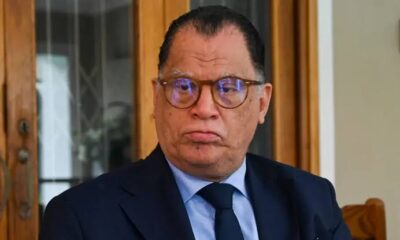

South Africa’s FA president Danny Jordaan arrested on fraud, theft allegations
The President of South African Football Association (SAFA), Danny Jordaan, has been arrested on allegations of fraud and theft. Jordaan,...
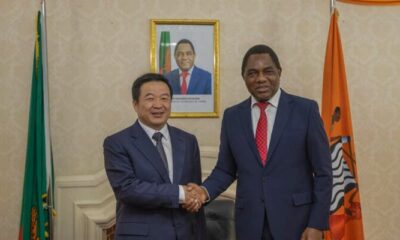

Chinese mining giant CNMC set for $1.6 billion investment in Zambia
A Chinese mining giant, China Nonferrous Metal Mining Company (CNMC), has announced the investment of over $1.6 billion in Zambia,...


Mpox immunisation scarcity slows Kinshasa’s epidemic fight
A lack of mpox vaccine doses has prevented the Democratic Republic of the Congo from starting a campaign in the...


After decades of imports, Nigeria ends oil importation
The Nigerian National Petroleum Company Limited (NNPC) has declared that it has finally stopped the long-standing practice of importing petroleum...
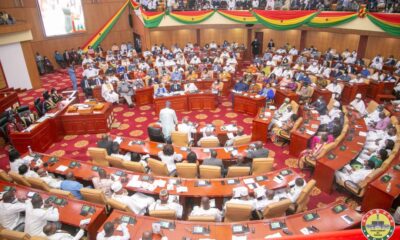

Ghana’s Supreme Court reinstates ruling party’s majority
The ruling New Patriotic Party regained its majority in the legislature ahead of the Dec. 7 election after Ghana’s Supreme...
Trending
-

 VenturesNow2 days ago
VenturesNow2 days agoAfter decades of imports, Nigeria ends oil importation
-

 Politics2 days ago
Politics2 days agoGhana’s Supreme Court reinstates ruling party’s majority
-
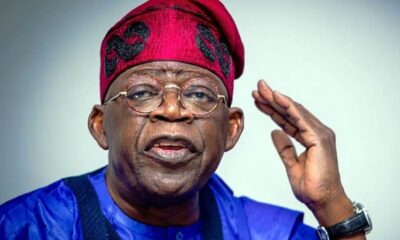
 Metro2 days ago
Metro2 days agoNigerian journalist claims US govt filing confirms Tinubu as ‘CIA Agent’
-
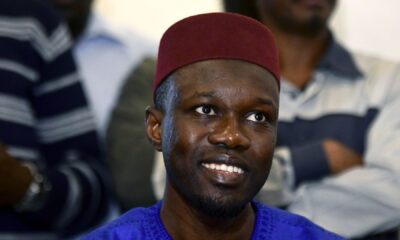
 Politics2 days ago
Politics2 days agoSenegal: PM Sonko urges followers to avenge campaign violence


